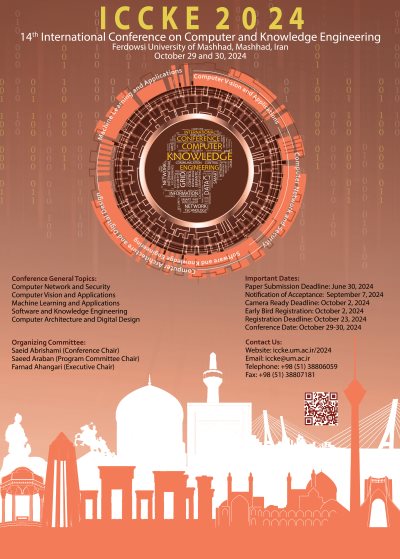0% Complete

Authors :
Keywords :
Abstract :
List of archived papers
Ahmadreza Montazerolghaem - Maryam Khosravi - Fatemeh Rezaee
Dennis A/L Mariadass - Ervin Gubin Moung - Maisarah Mohd Sufian - Ali Farzamnia
Majid Nezarat - Masoume Momeni
Reza Latifi - Mahmoud Naghibzadeh
Lachin Zamani - Reza Azmi
Somayeh Kalhor - Mohammad reza Keyvanpour - Afshin Salajegheh
Abolfazl Dibaji - Sadegh Sulaimany
Behdad Sadeghian Pour - Hamidreza Mohammadi Jozani - Shahriar Baradaran Shokouhi
Athareh Fatemian - Bahman Zamani - Marzieh Masoumi - Mehran Kamranpour - Behrouz Tork Ladani - Shekoufeh Kolahdouz Rahimi




